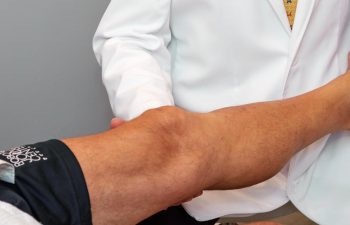
The most common form of arthritis, osteoarthritis affects the cartilage that provides cushioning support for the joints. When this cartilage suffers wear and tear, the result is rubbing of the bones together that causes pain, inflammation and limited range of motion.
There are four stages of osteoarthritis that relevant medical professionals such as physical therapists and orthopedic surgeons use as a loose guide to determine the severity of the condition. By stage 1, you will begin to notice the early signs of osteoarthritis, but may not realize you are suffering from a progressive illness.
Stage 1 – Minor
The first stage of osteoarthritis may not produce pain symptoms, as there is little wear and tear to the cartilage. When the sufferer does suffer pain, this is often dismissed as the natural effects of aging or echoes of an old illness.
Stage 2 – Mild
After sitting still or lying down for a period of time, stage 2 typically results in stiffness in the affected knee or knees. Bone spurs are more visible in imaging scans and pain has likely increased. In many cases, sufferers begin relying on a knee brace for support in stage 2.
Stage 3 – Moderate
If you are experiencing pain, stiffness or inflammation during periods of activity, your osteoarthritis has likely reached stage 3. This indicates that the cartilage is wearing away. Discomfort and increased pain levels can also make moving around difficult.
Stage 4 – Severe
By stage 4, osteoarthritis leaves sufferers in severe pain and discomfort. Due to the severity of the condition, inflammation dramatically increases and bony spurs begin to overgrow around the joint. In most cases, sufferers will not have the ability to walk unaided at stage 4.
Osteoarthritis Treatment
The progress of osteoarthritis can be slowed with the right treatment methodologies. In the early stages, medications and physical therapy interventions are recommended. However, as the condition becomes more severe, the patient may require surgery. In the worst case scenario, the most appropriate approach is complete replacement of the joint.
At the Robotic Joint Center in New York, we offer a range of solutions for treating osteoarthritis of the knees. Our commitment to the use of the most innovative technologies in orthopedic surgery results in better outcomes for patients. Call today to learn more.
Posted on behalf of
New York, NY 10021
Phone: (212) 308-3089
FAX: (646) 844-1396
Email: Info@RoboticJointCenter.com
Mon – Fri: 9 AM – 6 PM